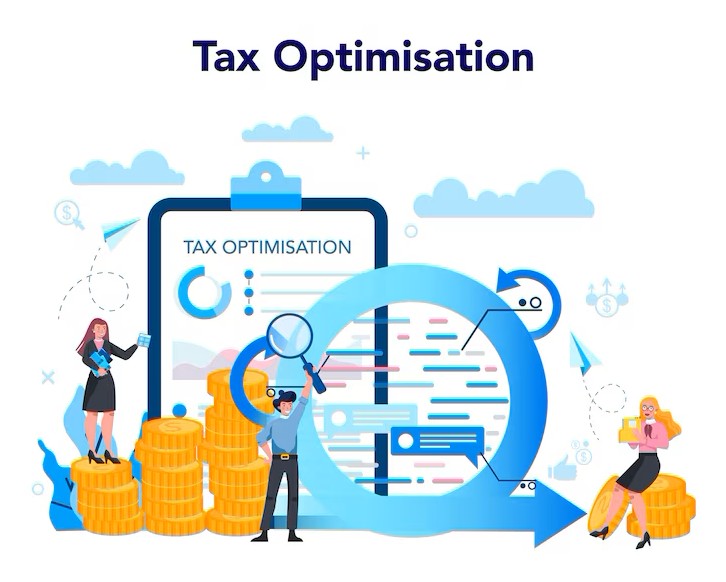Are you a small business owner struggling to keep track of your finances? Do you find yourself drowning in paperwork and constantly worried about the accuracy of your financial statements? Then it’s time to consider open accounting and explore the various tools for accountants available today. This revolutionary approach to bookkeeping can help you streamline your financial management, gain valuable insights into your business performance, and ultimately achieve greater success.
In this article, we’ll explore why open accounting is essential for small businesses and how you can implement it in your own company. So sit tight and get ready to take control of your finances like never before!
Table of Contents
Introduction to Open Accounting
Open accounting is the practice of making your business finances and accounting practices available to anyone who wants to see them. This includes things like sharing your income and expenses, as well as any debts or loans you have.
The benefits of open accounting are numerous, but they’re especially valuable for small businesses. When everyone can see how your business is doing financially, it builds trust and transparency. It also allows you to get feedback and advice from others who can help you improve your financial management.
If you’re not already practising open accounting and utilising these tools for accountants, now is the time to start. It’s essential for small business success!
Benefits of Open Accounting for Small Businesses
Open accounting is the practice of making your financial records available to anyone who wants to see them. This may sound like a recipe for disaster, but there are actually many benefits to open accounting for small businesses.
Open accounting increases transparency and accountability. When your financial records are open for everyone to see, and you’re using these reliable tools for accountants, you’re less likely to make mistakes or engage in questionable behaviour. This can help build trust with your customers, employees, and investors.
Another benefit is that it can help you get feedback and advice from a wider range of people. If you’re struggling with a decision, asking for input from others can help you make the best choice for your business.
Open accounting can help you improve your financial planning and management. Having all of your financial information out in the open can help you identify areas where you need to make changes or cut costs. It can also help you track your progress over time and make sure you’re on track to achieve your goals.
What are the Different Types of Open Accounting?
Open accounting is a form of accounting that allows small businesses to track their finances in real time. This type of accounting is essential for small business success because it provides transparency and allows businesses to make informed decisions about their finances.
There are two main types of open accounting: accrual basis accounting and cash basis accounting. Accrual basis accounting is the most common type of open accounting and tracks all financial transactions, regardless of when the money is actually exchanged. Cash basis accounting only tracks transactions when the money is exchanged, which can be helpful for businesses that have a lot of cash flow.
Both types of open accounting have their pros and cons, so it’s important to choose the one that’s right for your business. If you’re not sure which type of open accounting is best for you, talk to an accountant or financial advisor.
How to Implement an Open Accounting Strategy
Open accounting is essential for small business success because it allows businesses to be more transparent with their finances. When businesses are open about their finances, it builds trust with stakeholders and investors, and helps to ensure that the business is operating efficiently.
There are a few key things to keep in mind when implementing an open accounting strategy:
1. Be Clear About Your Financial Goals and Objectives:
What do you want to achieve by being more open with your finances? Do you want to build trust with stakeholders? Improve efficiency? Once you know your goals, you can develop a plan to achieve them.
2. Communicate Your Plan to All Relevant Parties:
Once you have developed your plan, it’s important to communicate it to all relevant parties, including employees, shareholders, and investors. This will help everyone understand what you’re trying to achieve and buy in to the plan.
3. Implement the Plan Consistently:
Consistency is key when implementing an open accounting strategy. You need to make sure that you’re providing accurate and timely information on a regular basis. If there are any hiccups along the way, be sure to communicate them openly as well.
Tips and Best Practices for Open Accounting
As a small business owner, you know that cash flow is the lifeblood of your company. To keep your business healthy and growing, you need to have a clear understanding of where your money is coming from and where it’s going. That’s where open accounting comes in.
Open accounting is the practice of sharing financial information with all interested parties. This includes things like sharing financial statements with your employees or providing detailed reports to shareholders.
The benefits of open accounting are numerous. For one, it helps build trust between you and your employees or investors. It also allows for greater transparency and accountability, which can help prevent fraud and mismanagement.
Open accounting can also help you make better decisions about where to allocate your resources. By seeing where your money is going, you can identify areas that may be ripe for cost cutting or investment.
If you’re not already practising open accounting, now is the time to start. Here are a few tips to get you started:
- Be transparent about your finances. Share financial statements and other relevant information with employees and investors on a regular basis.
- Encourage questions and feedback. Invite employees and investors to ask questions about your financials and give their input on important decisions.
- Communicate openly and honestly. If there are problems with cash flow or profitability, don’t try to hide it – address the issue head on. Honesty will build trust and respect among those involved.
- Invest in good accounting software. Good software can help you keep track of your finances and provide detailed reports for easy sharing with everyone involved.
- Practise good internal controls. Have clear policies and procedures in place to ensure accuracy and accountability when it comes to financial transactions.
- Make sure your financial statements are accurate and up to date. Ensure that all relevant information is included in each report, such as revenues, expenses, assets, liabilities, and equity.
Open accounting is an important practice for any small business. By implementing these tips, you can build trust with employees and investors while also gaining valuable insight into your finances.
Overview of Popular Open Accounting Tools for Accountants
Open accounting is the practice of making corporate financial data available to the public. This data includes information on a company’s income, expenses, assets, liabilities, and equity.
There are many benefits of open accounting for small businesses. For one, it allows small businesses to track their financial performance over time and compare it to their peers. This is valuable information that can help businesses make informed decisions about where to allocate resources.
Another benefit of open accounting is that it increases transparency and accountability. When financial data is readily available, businesses are less likely to engage in activities that could be construed as fraud or misrepresentation. This increased transparency can also help build trust between a business and its stakeholders.
There are several popular open accounting tools available to small businesses. One such tool is XBRL (Extensible Business Reporting Language). XBRL is a standardised format for financial reporting that makes it easy to exchange data between different systems. It is used by major corporations around the world, and there are many software applications that support XBRL-based reporting.
Another popular tool is OFX (Open Financial Exchange). OFX is an open standard for exchanging financial data between different computer systems. OFX-based reporting systems are used by banks, brokerages, and other financial institutions worldwide.
GAAP (Generally Accepted Accounting Principles) compliant financial statements are also available from some online accounting software providers. These statements provide users with an overview of a company’s financial performance, and they can be used to compare financial statements from different years or across companies.
Finally, many accounting software packages also provide APIs (Application Programming Interfaces) that allow users to access their financial data in a variety of formats. This makes it easy for businesses to generate reports on their performance and share them with partners, investors, and other stakeholders.
Final Thoughts
Open accounting is an essential tool for the success of small businesses. By providing a clear financial picture, it allows owners and managers to make informed decisions about their company’s health. Additionally, with the help of an accountant or other professional advisor, small business owners can use open accounting techniques to prepare reports that will be necessary for securing loans or investments.
With all these benefits in mind, it’s no wonder why many successful small businesses are embracing the power of open accounting today.




